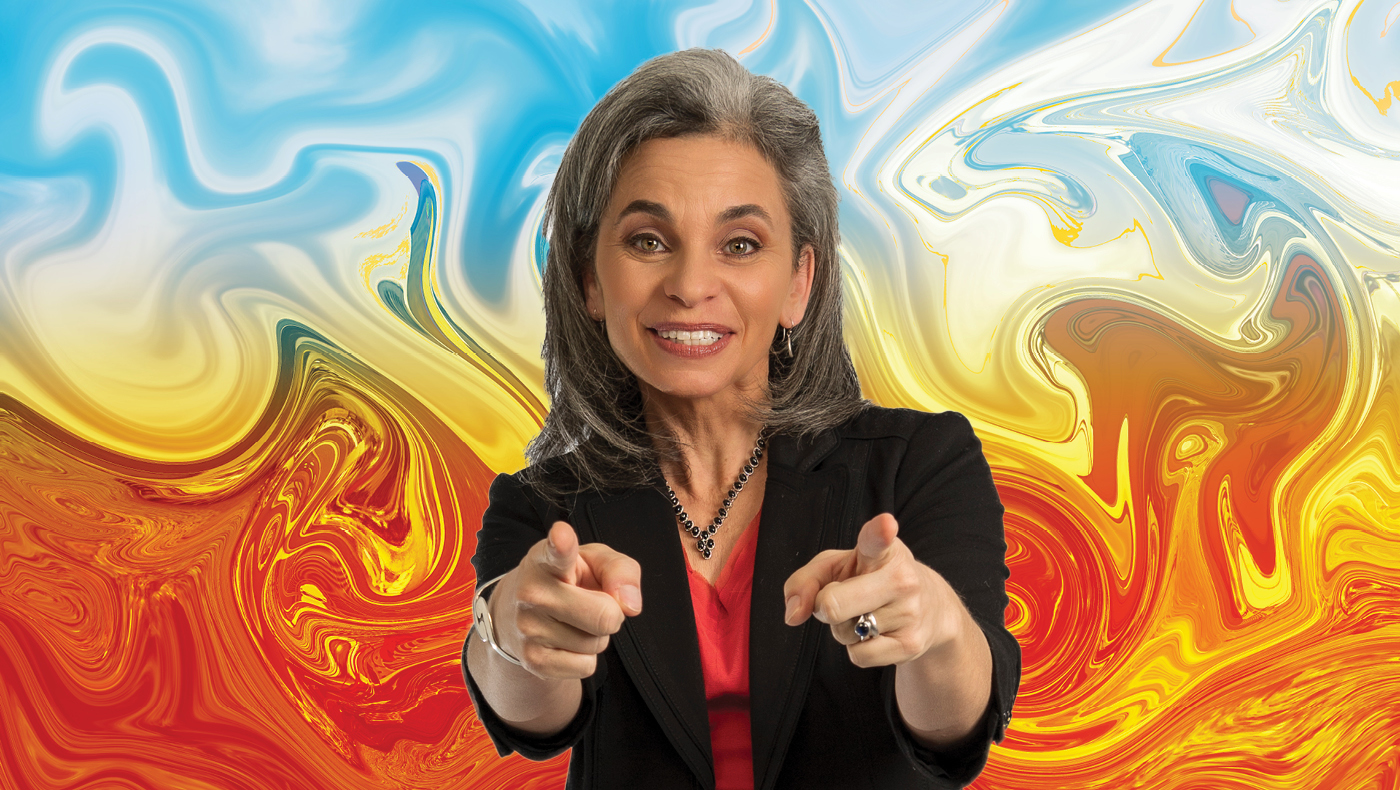Editor’s note: The following question-and-answer interview with Prof. Wendy Smith was part of a series of conversations in the UD Research Magazine. The theme was UD Disruptors. As a research university on the leading edge, UD has a multitude of creative thinkers and doers. This piece originally appeared in UDaily and is reprinted with permission.
Do you think of choices as being either “right or wrong”? Or that you should focus on making a profit in business versus achieving greater sustainability or some other goal? In the face of competing demands, Wendy Smith says we should let go of the old “either/or” way of thinking and embrace “both/and”—what she refers to as “the power of paradox”—to truly unleash creativity and succeed in today’s world.
Smith said she believes success comes from living in the “and.” In her research, she is helping leaders to be compassionate and competent, assertive and engaging, committed to family and committed to work.
Q: What do you study, and what led you into this field?
Wendy Smith: I study how people manage ongoing, persistent, competing demands—tensions between work and life, being collaborative or being competitive, acting authentically or trying on new identities, getting big projects done or dealing with daily administrative tasks. In organizations, leaders need to address competing demands between performing effectively today while experimenting with new opportunities for tomorrow, or between being financially successful while addressing broader social, ethical and environmental concerns.
What we find in our research is that these competing demands are paradoxical—while they are contradictory and oppositional, they are also interdependent and synergistic. For example, our success at work impacts our lives and vice versa.
Traditional approaches suggest that effective decision-making involves thinking through a difficult decision, weighing the pros and cons of alternative options, making a clear choice. As professors, we teach our students how to collect and analyze data to make better choices. And then we like when people are consistent and stick with their choices. We believe that leaders who change their positions are “flip-floppers” or “wishy-washy.”
However, in our research we find that this kind of either/or thinking to try to choose between competing demands can actually be a detriment. Instead, a both/and approach to these tensions can lead to novel, creative and more sustainable outcomes. Yet, we also know that adopting this kind of an approach is really difficult for individuals as well as leaders of organizations.
I probably began exploring this notion of paradox because it spoke to me personally as I confronted my own competing demands in my career (be an academic or be a practitioner), my research (study organizations or study individuals) and my life (focus on my career or focus on my family), and how I often felt stuck and unsatisfied with the either/or choices as I experienced them.
Q: Did you color outside the lines as a kid?
Wendy Smith: Lines … what lines? As a kid, I was always much happier drawing on a plain white sheet of paper than in a coloring book.
Q: Can you recount the tipping point—the idea that produced your ‘aha!’ moment?
Wendy Smith: Ben and Jerry’s! Before starting my Ph.D., I briefly worked as a management consultant. I was intrigued by the concept of social responsibility. I remember sitting in a Portuguese restaurant in Newark, New Jersey, while my team leaders patronizingly told me the concept of social responsibility was idealistic, but limited. But the collapse of Enron as well as several other large corporations in the late 1990s demonstrated what happens if organizations focus only on profit.
Ben and Jerry’s and the organizations that followed that comprise Businesses for Social Responsibility, or all the organizations like B-Corporations that are changing legal structures to allow organizations to pay attention to a double and triple bottom line, demonstrate sustainable pathways to integrate profits and purpose. If we can bring together profits and purpose in a single organization, we can integrate all kinds of paradoxical tensions in our lives.
Q: Were there many naysayers and how did you navigate that?
Wendy Smith: Lots of naysayers! As a Ph.D. student, I wanted to study paradox, especially in the context of social responsibility.
Academics told me “paradox” belonged in a yoga study or a meditation session, not in academic journals. Others told me I would never get a job as a business school academic if I focused on social responsibility. I guess I was too naïve to listen.
There is a point where their feedback was right. While I did get a job, it took me a long time to be able to publish these ideas and share them broadly in the way I wanted to. That said, I was also able to navigate some of the naysayers by listening carefully to their arguments and thinking about how to better articulate mine. I spent a lot of time with forward-thinking individuals and executives to learn what they thought. I also surrounded myself with people who shared my ideas and could continue to help me think through and advance them—many became long-term collaborators and academic mentors. Finally, I worked to build a community of like-minded individuals about paradox to help support one another.
More on Wendy Smith
A professor of management at UD’s Lerner College of Business and Economics, Wendy Smith focuses on how leaders and teams can effectively respond to contradictory agendas. She teaches leadership, organizational behavior and business ethics and is a driving force behind Lerner’s Women’s Leadership Forum. Smith has a doctorate in organizational behavior from Harvard Business School, a master’s in psychology from Harvard, and a bachelor’s degree in psychology and political science from Yale.




